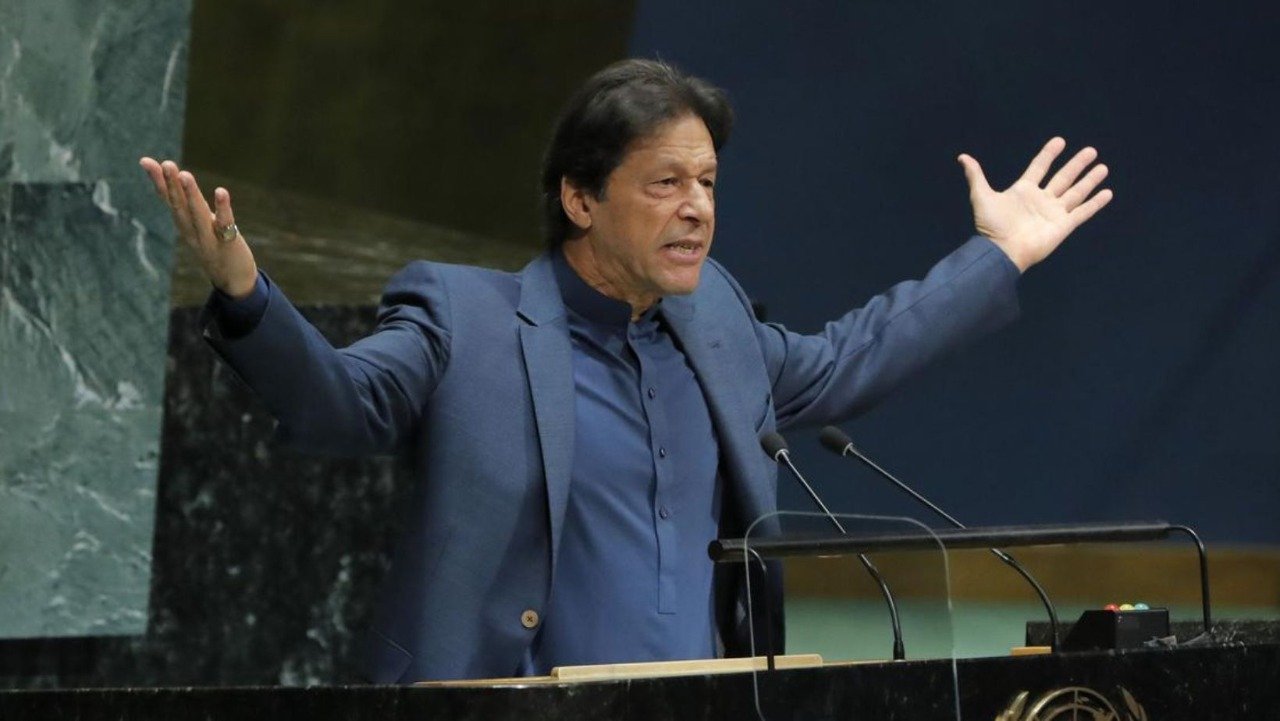PTI re-enters the top court's door in opposition to NAB law changes


Imran Khan, the leader of the Pakistan Tehreek-e-Insaf (PTI), filed an appeal with the Supreme Court on Monday after the registrar"s office declined to hear his constitutional petition contesting recent changes to the nation"s accountability law.
The former prime minister, through his attorney Khawaja Haris, lodged an application in the chamber against the registrar"s office"s objections, arguing that it was not the registrar"s responsibility to determine whether the "ingredients" for invoking this court"s extraordinary jurisdiction were "satisfied" or not based on the pleadings made and justifications urged in the constitution petition.
The registrar"s office of the Supreme Court had raised five objections against the PTI"s petition a day earlier, claiming that the petitioner had failed to specify what matters of great significance were involved in the enforcement of fundamental rights protected by the Constitution in order to specifically invoke the Supreme Court"s jurisdiction under Article 184(3).
In a statement released by the office, it was said that "the requirements for involving exceptional jurisdiction of this court under Section 184(3) of the Constitution have not been satisfied."
The top court registrar"s office protested that the petitioner had not utilised the proper legal channels and had not done so while simultaneously demanding an explanation.
It was further noted that Rule 6 of Order XXV of the Supreme Court"s Decision, 1980, which calls for a certificate from the advocate-on-record (AOR) had not been followed.
Modifications to the ordinance, according to the former prime minister Imran, would allow public officials to get away with white-collar criminality. Through Khawaja Haris, the attorney representing PML-N supremo and former prime minister Nawaz Sharif in the Panamagate case, the constitutional appeal was submitted in accordance with Article 184(3).
In its appeal, the PTI, which had challenged the objections on Monday, said that the grounds outlined in the current constitution petition are comparable to those upon which this court had previously taken suo motu notice.
"The subject-matter of the instant case is also the flagrant undermining of the criminal justice system (qua white-collar crime) by authorities (i.e. holders of public office) in connection to offences of corruption and corrupt practises pending at various levels under the NAO, 1999."
In this respect, the fact that the proposed changes to the accountability laws that serve as basis of the constitution petition are indeed violative of "society as a whole" fundamental rights is also apparent from the purpose forms the foundation of this court"s suo motu notice, as suggested, inter alia, in the press release on May 18, the appeal read.
The appeal also contended that the satisfaction of the "ingredients for invoking the exceptional jurisdiction of this court under Article 184(3) of the Constitution" is further spelled out by the fact that all of the grounds pleaded and questions of law raised in the appellant"s constitution plea are inextricably linked to safeguarding the economic life of the nation and its citizens, which, as this court has repeatedly held, is a part of the fundamental rights guaranty.
It further said that whether such a matter is involved and requires adjudication by this court is to be investigated and decided by this court, not the registrar, in accordance with the exact terms used in Article 184(3).
The appeal asked the Supreme Court to overturn the registrar"s order and mandate that the constitution petition be assigned a number and scheduled for hearing before a bench.